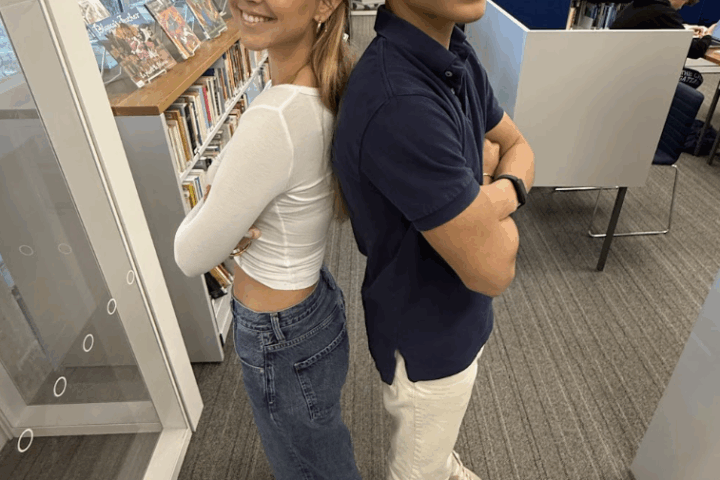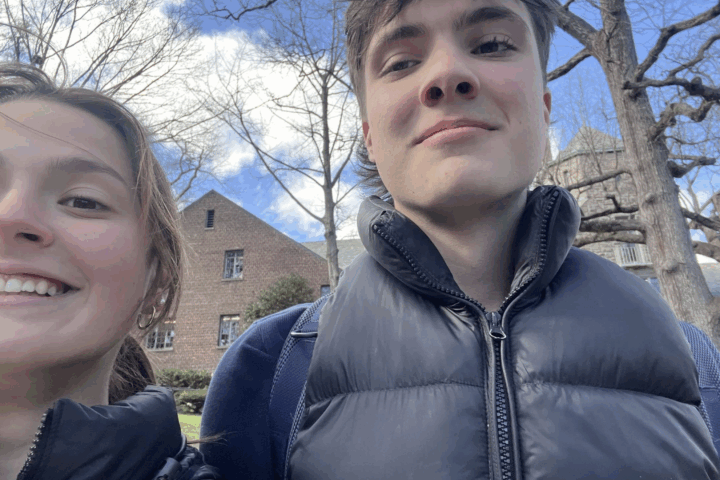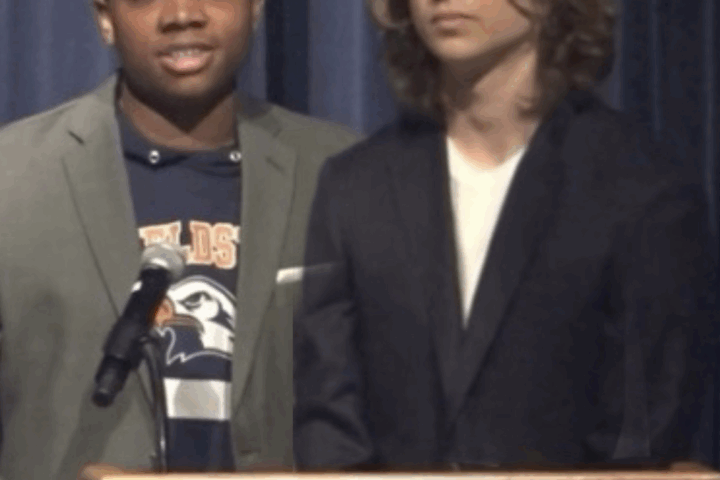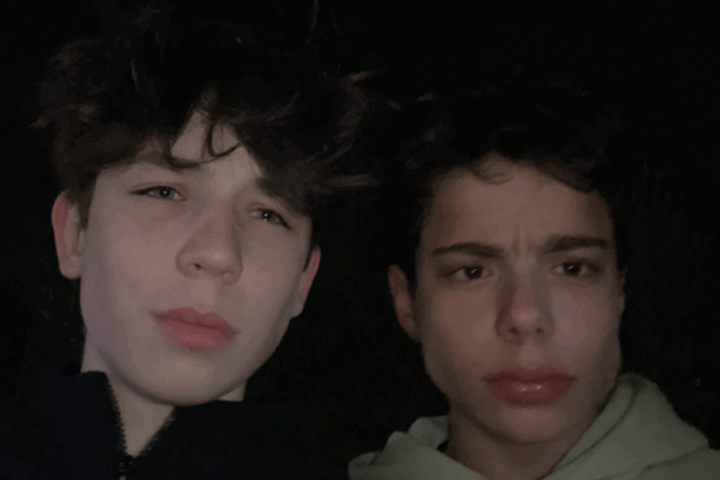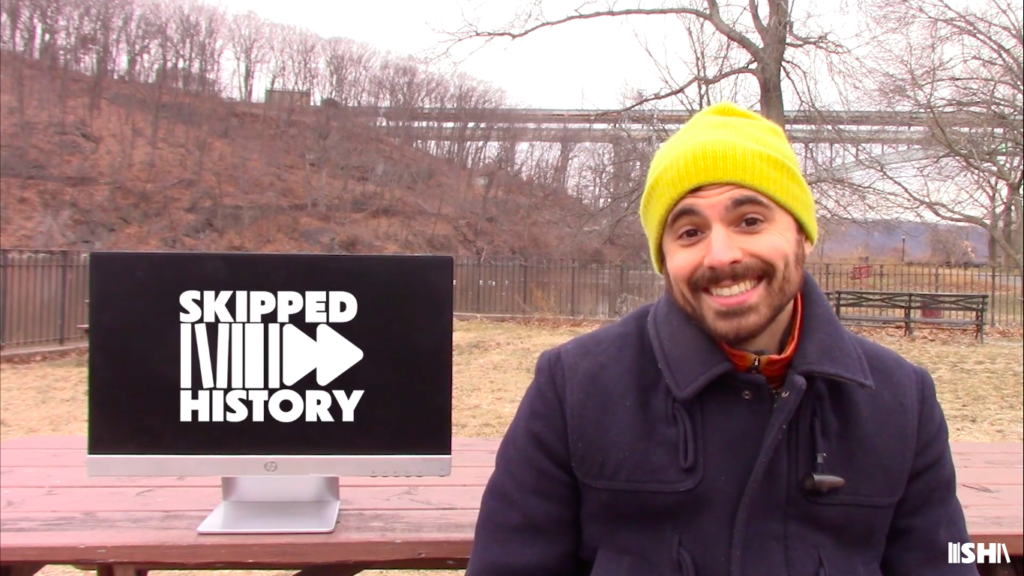
“Skipped History” is a comedy web series created by 2008 Fieldston graduate turned historical satirist, Ben Tumin that has real bite. The series focuses on overlooked – skipped – historical events, figures and concepts which reflects Tumin’s desire to make this history more accessible. Tumin appears on screen, sometimes with the Henry Hudson Bridge in the background, lightly bearded and capped, cutting back and forth between photographs, maps, cartoons and himself. He does this with humour, outrage, an activist’s heart and an irreverent “nod and wink.”. In a very real way, it is comedy that comes with footnotes and a bibliography.
Recently I was fortunate enough to interview Tumin via zoom to gain perspective on his work.
Sophia Gutierrez: Please tell us a little bit about yourself and the work you’ve done, “Skipped History” and beyond since you’ve graduated from Fieldston.
Ben Tumin: I graduated from Fieldston in 2008, so about 13 years ago I went to Pomona College to study history. I then went on to work in Morocco for a little bit out of college, bounced around and ended up coming back to New York in 2014. I worked in tech for a few years while also building my own independent comedy brand which eventually led me to leave my job to pursue that work full time in 2016. It’s evolved ever since. Before the pandemic, I was set to tour a humorous 45 minute presentation exploring the ramifications of the U.S. led coup in Guatemala in 1954. The tour was sadly cut short due to the pandemic. I had about one performance in January 2020, then the tour was really set to take off in March. But then, the writing soon became on the wall, so the time ahead served as an unwelcome opportunity to catch up on a lot of history books that I had been wanting to read. I did a lot of bird watching, one of my nerdier pursuits, inspired by Mr. Peter Mott, who was my 7th grade Science teacher at Fieldston. Then in September, I launched “Skipped History” to illuminate some of the history I had been reading about during that time.
SG: You seem to take a Zinn-esque approach to exploring these different historical events which is coupled with your signature comedy. The comedic aspect seems to make these issues more palatable and engaging. Was this your intention? What is the intention of “Skipped History”?
BT: History can be really hard to discuss. There is a lot of obscured history, which in many cases has been intentionally obscured to sustain a white supremacist hierarchy. Combine this with the fact that so much history that’s been skipped really is quite depressing, comedy is a tool to discuss these issues in a different way. As you said, this makes it more digestible and accessible. I would say that it’s possible to insert remedies without taking things lightly. I’m generally quite a curious and inquisitive person, a bit nerdy, and overall I tend to make jokes about any subject. I’m that person at a funeral who’s making some sensitive jokes to try and lighten the mood. Not that my intention is to equate history to a funeral, but I think that comedy is both a tool to make history accessible and also a reflection of my personality. I studied history in college, which was something inspired by all of my many wonderful History teachers at Fieldston. I also did a lot of comedy during college, so “Skipped History” is a reflection of my nerdier and more intellectual side as well as my more humorous and comedic personality. My comedy is an acquired taste. I say to people who haven’t seen it, it’s a mixture of very serious and very silly to say the least.
SG: In your videos you are someone who is holding historical figures accountable, exposing these different historical events for what they really were, while often representing the perspective of those who suffered from these events and were oppressed by these people. How did you develop this ability to challenge historical figures/events? Does this ability translate to the values and skills you learned during your time at Fieldston?
BT: To the first question, I developed the ability through natural talent and a lot of trial and error. I had a web series that I started in 2015 which was looking at overlooked international news, so that was the first time I was getting my content out there and developing a style. I honed in on the kind of material that was important to me, and almost always that was illuminating injustice and wrongs committed to marginalized communities. From there, I just kept working on it and putting out more material. Then in 2018, I toured a performance looking at the history of refugee settlements. I performed this at a Fieldston assembly at some point in September of 2018. During that performance at the end during the Q and A, what people were the most interested in was learning more about history. There was a part in that performance where I was talking about the parallels between a poll I showed from 1938 that recorded the responses of U.S. citizens to the entrance of refugees in the United States in comparison to a poll with responses of U.S. citizens from 2017. There were remarkable similarities between the two. I realized in that part of the Q and A, what people craved was learning about more history. I find history endlessly compelling, it contains so many of the answers to today’s societal issues along with the reasoning behind them. I think elevating and highlighting those answers is crucial to reimagining the kind of society we want to have in the future. That philosophy aligns with what I learned and the values I absorbed at Fieldston. My grandfather was a Jewish refugee who fled Germany in 1937, and to assimilate to American culture, he joined the Ethical Society of New York and that’s how he learned English, developed a U.S. accent and through that society met his wife, my grandmother. So it was important to him that my sister and I attended the Ethical Culture Fieldston School system from a young age. So, my sister and I started at Ethical when we were 7 years old. So I would say that I learned a lot of the values of both trying to right the wrongs of the past from my family and both the school system while also being cognizant, especially now, of how many wrongs there are both in society and within the school system.
SG: What are your hopes for the future with regards to “Skipped History” as well as your other work? What do you currently have in the works?
BT: “Skipped History” was featured in The New York Times recently. “Skipped History” season 3 starts in September and I’m beginning with a couple of episodes on The Attica Prison Uprising, the 50th anniversary of which will fall on the 9th of September, and that is some really stunning and disturbing series of events. Then we’ll go on to explore some more indigenous environmental and economic history as we’ve looked at before. Plus as always our favorite subject on “Skipped History”, white supremacy. My hope for the series is that more and more people tune in and more of the history that’s been obscured comes to life. I hope this leads to more conversations and perspectives can be changed by talking about these things that haven’t been talked about very much in the past. I also have a podcast in the works, it seemed like there just weren’t enough people that looked like me in that space…I’m kidding. This will hopefully come out in the next year. I also have a youtube channel and a newsletter where I send videos and other messages. Finally, I might try and mess around with TikTok to show you just how old I am. So yeah, just more history through different mediums at the moment.

